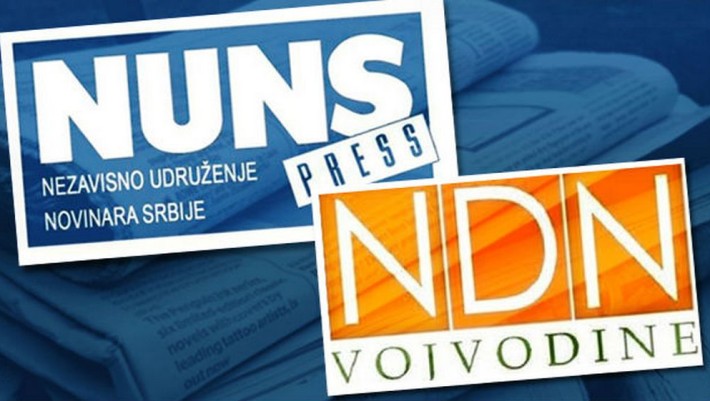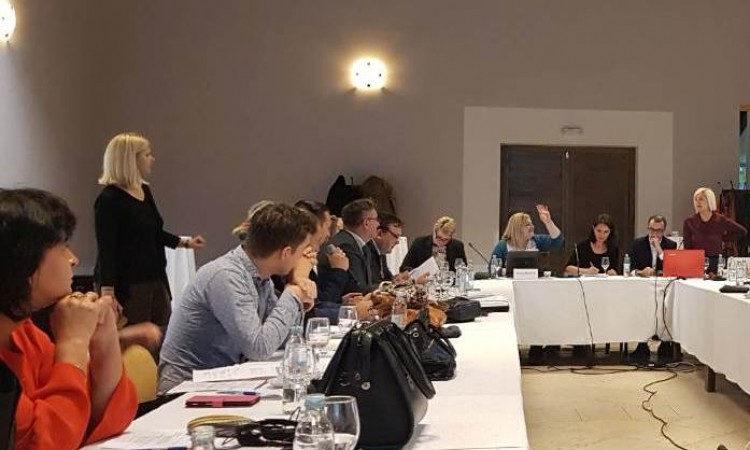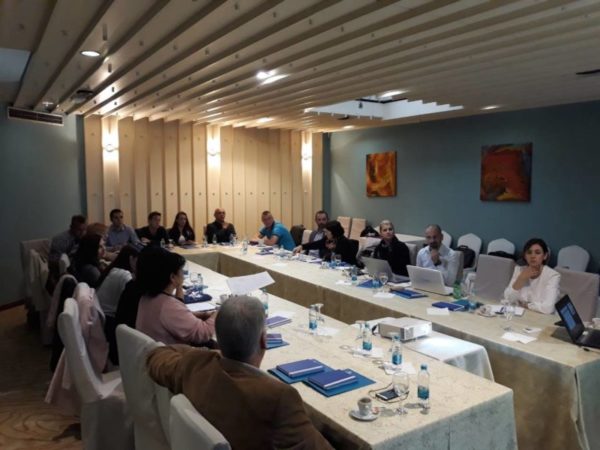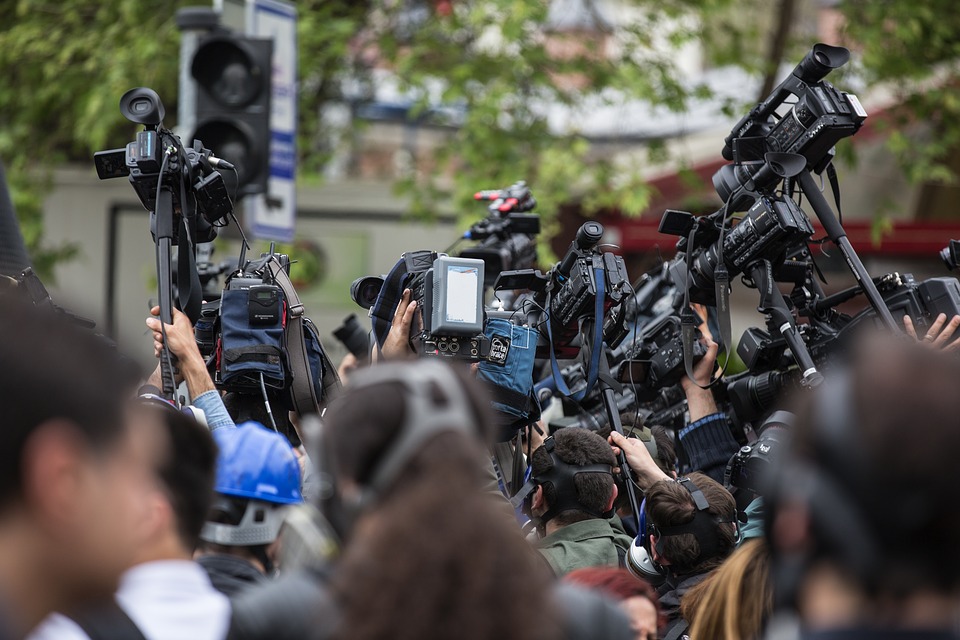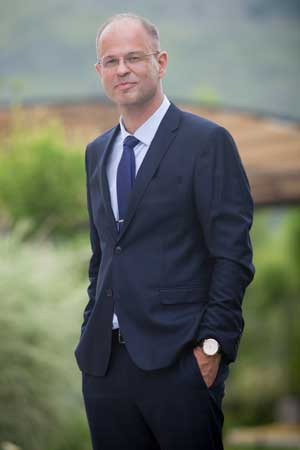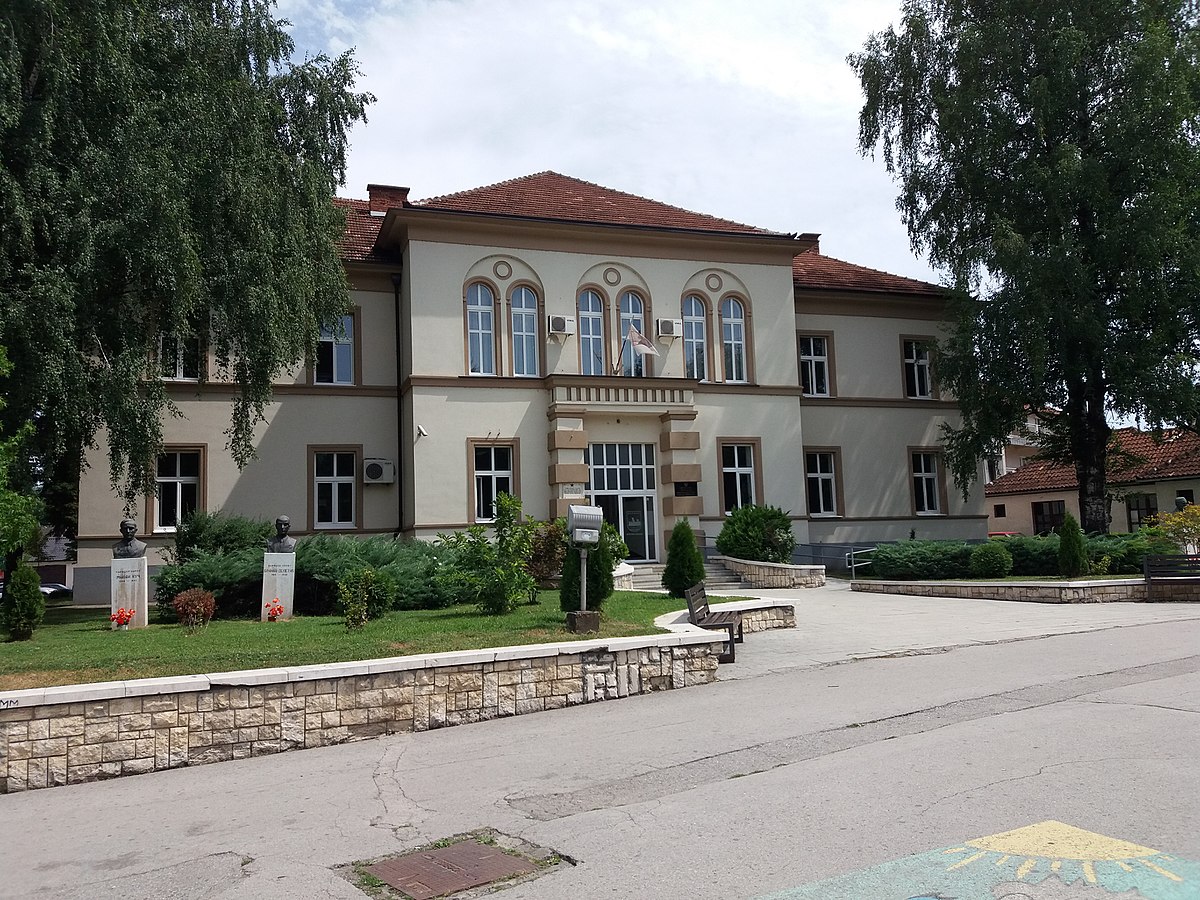SARAJEVO, 30.10.2018.-The false or fake news is not 21st Century product. They have always existed, not only in media intermediate communication but also in every day (human) communication.
For instance, parents often, all for the best cause, use lies (existence of Bugaboo, Boogeyman eating little kids etc), so they could have easier control over their kids and raise them at the very early stage in their lives. As far as media is concerned, the existence of so-called “yellow or tabloid” type of journalism, emerging at the end of 19th Century, brought some kind of first forms and shapes of false (fake), over – exhausted and sensational types of news.
Development of electronic media at the beginning of the 20th Century also produced the overflow of so-called “black propaganda” (false news), particularly during the world war times. False news, in this sense, aimed to produce a political effect. Expansion of commercial television, in the second half of the 20th Century, created conditions ideal for spreading of grey propaganda, in terms of the commercial advertisement that selectively highlights affirmative and positive characteristics of the certain product, with the purpose of better sales results.
Finally, the internet development era emerged powerful “explosion” of the large number of various online channels and platforms, through which false (fake) news could be shared and spread out very fast. Therefore, the internet development created conditions for the flow of false (fake) news in the public space, because there are even more channels that can intercede this kind of contents, without anyone being legally responsible for their posting.
The production of false (fake) news is mostly associated with so-called “savage“ internet websites, although the trend of posting this kind of media contents is common to traditionally “registered” mass media houses; on the contrary. Reasons for the production and posting of false (fake) news mostly include political (there is opinion that false (fake) news ensured the victory of Donald Trump during the presidential campaign in the USA) and economical background (most common form of economically motivated false (fake) news include classical commercial advertisements and popular click bait)1 . Social media represents convenient conditions for spreading false (fake) news over the internet. Precisely speaking, we estimate that social media, in fact, represents the infrastructure for fabricating and making the influence of false news.
False internet websites simply have much better influence and viewership when they share their contents over social media pages. Strong expansion of “savage” internet websites (internet websites that do not have clear ownership details, including editing policies etc) has influenced the changes in characters of traditional journalism in general.
The Internet allowed common individuals to post contents without control and responsibility much faster, comparing to traditional media sources. In this sense, mass media seems to lose this race for exclusive news, considering that they cannot follow presenting and scope of social media and various alternative online websites. In other words, the audience is no longer in position to receive the most recent news from mass media sources, because the news has already reached some social and internet platform. In this sense, it seems that traditional mass media can no longer be considered as gatekeeper, that is, tight thoughts defining the news; instead, they are rather gate-watchers (Bruns Vs Howard: 2013:60) having the role too, to some extent, verify the contents which have through various channels, reached the public space.
Often, traditional media without additional checking and with the purpose of having an exclusive taking the false news copied from “savage” and unreliable internet websites. A book example for this was the case of certain Serbian satirical web site, namely News.net, where a drunken Serb allegedly killed a shark by diving in and falling on it and this accident apparently took place at Sharm el Sheikh (Egypt) holiday resort. Without prior checking of the credibility of such information, journalists from traditional media in the entire region released this news, published the text, which even reached the New York Post.
Fake news in BiH
In the context of BiH, it seems that false (fake) news have (through history) mostly been used for the purpose of acquiring personal interests of powerful political subjects. During former single – party system in BiH, propaganda was very frequent and was aimed to homogenize the entire population, create leader personality cult and to sustain political and ideological status quo. Additionally, ever since the signing of Dayton Peace Agreement (1995), the entire BiH society was exposed to miscellaneous, politically and biased media contents, with all elements of propaganda, semi-information, misinformation etc. Media displays significant polygon for the promotion of certain politics but also represents the weapon in political conflicts, used cunningly by local politicians for the period of past twenty years.
Journalists’ authenticity, objectivity, responsibility, professionalism, and ethical values are mostly the victims of political disputes and conflicts through media sources. Consequently, media and public space have already been contaminated with biased and non-objective media reports serving for propaganda aims by many political subjects. This is how in 2016, Dnevni Avaz (a local newspaper) issued poll results where citizens unlimitedly showed their support for Fahrudin Radoncic, SBB political leader, who at the same time was the founder of and the first owner of Dnevni Avaz, and among questioned persons, the photo of Ricky Gervais, British comedian, and actor appeared (un) intentionally, along the name of Bosnian citizen, namely, Dževad Aličić, who had originally been interviewed.
It was later released that the photos of other interviewed people of this poll were also false and copied from various internet websites. Dnevni Avaz journalists released a public apology to all of their readers, including the interviewed people, because of rough, but yet unintentional and non-deliberate mistake. Although the apology released by Dnevni Avaz officials was publically released, the question was whether the purpose of this poll was to manipulate the public releasing the false poll results and showing the great support Fahrudin Radoncic by the interviewed persons. Political disputes and conflicts, where traditional media sources (due to existential dependability from political power centers) served only as the weapon for conflict with political opponents, has transferred and moved to the online field.
Therefore, false (fake) news or news with elements of false information is already there, but with the development of internet and social media, they are cherishing and experiencing their advancement and progress.
“Savage” internet websites and fake news in BiH
Internet websites make the significant segment of the media system in BiH. It is the fact that traditional media sources are slowly losing their audience that mostly uses internet sources for receiving information through online media platforms. Therefore, the responsibility during the work of information – based internet websites should be on a significantly higher level.
There is a significant number of information – based internet websites in BiH that operate or tend to operate in accordance with professional standards, complying with Press Code rules and online media guidelines in BiH. The following websites should make this list and these include: “Klix”, “Buka”, “MojaHercegovina”, “Depo”, “Frontal”, “Slobodna Bosna” etc whose professional conduct, among other things, is reflected through the information on editing structure (Impressum) as well as some information regarding the ownership structure.
Still, it seems that the number of websites that cannot be classified as professional and information – based and news websites are greater than those mentioned above. The is a great number of “savage” internet websites that appear overnight and out of nowhere in the media field in BiH and these websites do not comply with any types of codes in their work. Generally speaking, we could say that the BiH online media scene is mostly followed by great problems and issues, primarily those of non-transparency of media ownership and editing structures. Namely, the problem with the absence and lack of information, regarding the ownership structure is reflected in the fact that an individual, hidden from the public sights, may at the same time, own and possess more than one media house (which in fact obstruct the pluralism of opinions and stances) on one hand, and, on the other hand, this strengthens and reinforces the unilateralism in media reporting.
The public must be provided with the information on ownership background, so they could identify and recognize the goals and intentions of the certain media house. Besides, the absence and lack of transparency of ownership and editing structures allow the flow of so-called “copy-paste” journalism, that is, simply taking over and posting the contents from other media sources, without any permission whatsoever. Taking into consideration that there is no information regarding contact details on the official web pages of these websites, there is no responsibility for copied and taken contents either.
Furthermore, these websites may not only take and copy information – based and news from other media source, but also, they may serve as the polygon for posting of false (fake) and unchecked information that is motivated either economically or politically. Although there are official information and evidence, we could all, at first sight, recognize and identify the great number of “savage” internet (informative) websites (mostly of local character) in BiH serving the promotion of interests by particular political power centers, that is, disputes and conflicts with political opponents. Respectively, internet websites display a modern form of former political party bulletins aimed to get cheap political points and to homogenize their potential election voters.
For the promotion of such contents, political party activists are in charge and their job is to, using internet websites and social media, and depending on the context, praise or to criticize the activities of political subjects who serve as key protagonists of particular media contents. Apart from motivated misinformation or false (fake) news, in the context of online websites in BiH, it seems that clickbait contents are rather represented and present in BiH internet market as their goal is to aim for the profit and entertainment. This specific form of media contents has simply flooded the internet and social media. Clickbait works according to the tabloid – based rules, including sensational and so-called yellow type journalism.
The point is that sensational topics (such as: ”You won’t believe what happened”) draw attention and “bait” readers (viewers) so they could click on these topics. The content of these texts is absolutely opposite to what it originally stands for, but this is irrelevant, considering that their primary goal is to make a profit, rather than authenticity. Namely, after every single click or open link, certain profit is obtained which is furthermore multiplied with the enormous number of views, clicks etc. Apart from this, these contents spread throughout social media very fast and like a plague, they become viral as well. The danger is that viral occurrence has become the most important value, where other criteria, such as accuracy and authenticity, remain marginalized. Today, the number of shares and likes to mark and define the “quality” contents, which is why most internet websites compete for the largest possible reach. In this sense, the emerging of click baits contents is actually part of the wider wave of the tabloid – based journalists’ and social values.
Apart from profit context, false (fake) news may be considered as the product of simple entertainment of “digital savages” who by posting certain wrapped and manipulative video clips or photoshop false photos, prove their “superiority” in relation with “analogue” and insufficiently “(IT) literate” old –aged audience. One of these benign samples of photoshop made photo was the bear that was walking through the center of the town of Pale on 1 April 2015. Considering that it was 1 April, this joke caused the panic of the local population. However, on the other hand, there were cases of an even greater amount of irresponsibility and immaturity.
Apparently, during the great river floods, which happened and emerged in 2014 in BiH, the photo containing dead bodies floating in Drina River also appeared on the internet. Drina River flooded during this particular period, just as many other rivers in BiH. This kind of fake (false) news, apart from misinforming the general public, also caused great panic and fear. The problem is that there is no specific legislation that would disable or even obstruct the growing number of “savage” websites.
Press Council of BiH is the institution monitoring online media sources in BiH, but considering that this is also a self-regulatory body, it has no legal capacity to impose sanctions or fines by any means. The potential solution should include the passing of more appropriate and stricter legislative, but also the establishment of registry of all online media websites in order to increase transparency and additionally, to create the conditions for more professional work of these media houses. Raskirnkavanje.ba, a new local website recently began with its work and its intention is the disclosure of various forms of false (fake) news including misinforming, fake news, biased reporting, fact manipulation etc, that are posted on BiH internet websites and that are available to BiH general public.
This website represents refreshment in foggy online media space in BiH. Highlighting (un) intentional errors, online media attempt to raise awareness on false (fake) news as a negative occurrence that many individuals are still unaware of.
Conclusion: Media literacy as the key in the fight against false (fake) news
All in all, the existence of false (fake) news, in its widest sense, represents the danger for the functioning of democracy. The public, loaded with different contents of manipulative and propaganda – based character on daily basis, cannot reach the state of “critical maturity”, which again, is required and necessary for better comprehension and understanding of this issue, including critical valorization of social and political affairs. One of the most fundamental problems is the fact that the general public is (in the context of media issues) not sufficiently literate and usually does not question the authenticity of the contents they consume.
The need for media literacy is getting more significant in the era of the development of different online channels of communication and media platforms, which, among other things, means greater space for the occurrence of misuses and spreading and sharing of false (fake) and manipulative contents. As far as this issue is concerned, the public does need to acknowledge in order to help themselves understand the difference between quality based from poor quality contents and to check the source and authenticity of media contents regarding the aims and goals of posting of media contents. Taking into consideration the vast significance of media, the questioning of media contents, particularly the occurrence of potentially false (fake) news, should become a part of “personal hygiene” of every single citizen in this “global village”.
Apart from this, the wave of false (fake) news disables and disallows the public debate based on the force of arguments and facts. Life in the era of post-truth additionally makes this particular situation even more difficult. The core (post-truth) is that the facts no longer represent and display a significant role in the context of social relevance of information. People rather rely on their own emotions while making judgments and conclusions, instead of relying on facts and arguments. In this context, it seems that the BiH public believes our politicians and that their beliefs are based on pure emotions, instead of facing raw reality they are surrounded with and facing the environment they live in.
Therefore, we could say that false (fake) news represent some sort of fuel for the post-truth. Citizens indeed need reliable, correct and authentic information in order to have better positioning and to make political and quality decisions. In the time where false (fake) news dominates, that is, in times where misinforming is divided into “ours” and “theirs”, the space for healthy discussion is simply disabled and unavailable. The society is in the situation where all sides and parties in public sphere consider themselves right, that is, in the situation where there are no objective measurements of argument power.
On the contrary, it seems that the powerful arguments, disputes, arguing, insults, offends, hate speech and disrespect dominate in public space and are firmly supported by the emerging wave of the tabloid – based and spectacular reality, in which the society of 21st-century lives.
This text is a part of E-Bulletin– seventh edition of special serial of BHN online bulletin implemented through the “Media and Public Reputation” (origin. “Mediji i javni ugled”) project, also representing a contribution to public debate regarding the transparency of media ownership and upholding and encouraging the passing of set of laws aimed to advance media field and information market in BiH.
 This article has been produced as a part of the project Western Balkan’s Regional Platform for advocating media freedom and journalists’ safety with the financial assistance of the European Union. The contents of this article are the sole responsibility of the Independent Journalists’ Association of Serbia and its authors, and can in no circumstances be regarded as reflecting the position of the European Union.
This article has been produced as a part of the project Western Balkan’s Regional Platform for advocating media freedom and journalists’ safety with the financial assistance of the European Union. The contents of this article are the sole responsibility of the Independent Journalists’ Association of Serbia and its authors, and can in no circumstances be regarded as reflecting the position of the European Union.


